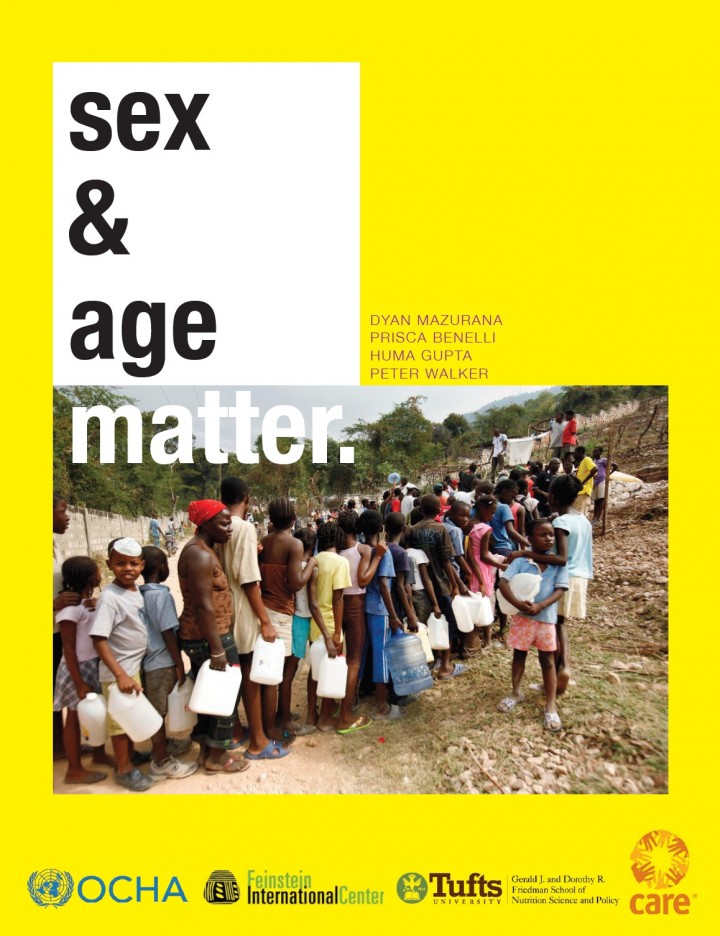Sex and Age Matter - Improving Humanitarian Response in Emergencies
Mazurana, D., Benelli, P., Gupta, H., Walker, P. (2011)

Published in: 2011
Pages: 92
Publisher:
Feinstein International Center, Tufts University
Author:
Mazurana, D., Benelli, P., Gupta, H., Walker, P.
Uploaded by:
SuSanA Admin
Partner profile:
common upload
1492 Views
5 Downloads
Humanitarian aid is largely guided by anecdotes rather than evidence. Currently, the humanitarian system shows significant weaknesses in data collection, analysis and response in all stages of a crisis or emergency. As a result, the present humanitarian system is much less evidence-driven than it should be and than it would like to be.
To ensure that vulnerabilities, needs and access to life-saving services are best understood and responded to, humanitarian actors must collect information based on sex and age. When this data is lacking, it limits the effectiveness of humanitarian response in all phases of a crisis.
This report shows that proper collection, analysis and use of sex and age disaggregated data, or SADD, allows operational agencies to deliver assistance more effectively and efficiently in a crisis. The net result is more lives saved, more livelihoods preserved, and basic human rights reinforced in situations where rights are often brushed aside.
This report is intended for policy makers and senior operational actors, both within the United Nations and INGOs, and in particular Humanitarian Coordinators, Heads of Offices and Cluster leads. This report is also directed at donors that fund humanitarian response to natural disasters and situations of armed conflict.
Data presented in this report comes from a review of over 300 publications, dozens of interviews with leading humanitarian actors in the field, and 17 case studies from around the world.
Bibliographic information
Mazurana, D., Benelli, P., Gupta, H., Walker, P. (2011). Sex and Age Matter - Improving Humanitarian Response in Emergencies. Feinstein International Center, Tufts University
Filter tags
English Gender equality Intersectionality














